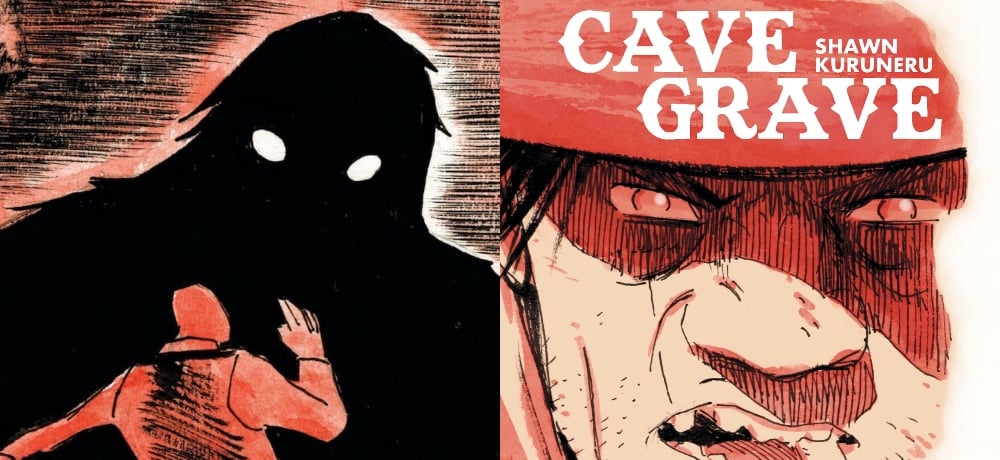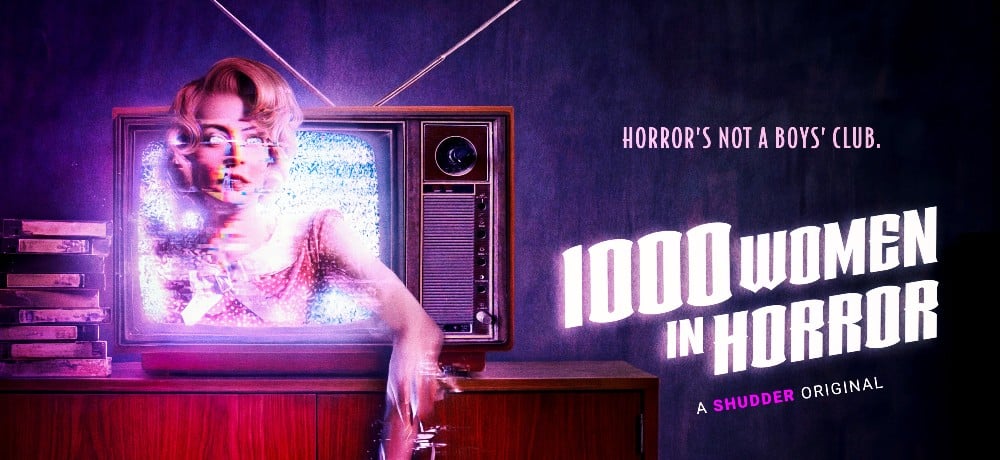





With The Strain Season 3 premiering August 28th on FX, I took part in roundtable interviews at Comic-Con with the cast and creators of the series. A wide range of topics were discussed, including Eph's mindset after the tragic Season 2 finale, how people perceive Fet and Gus, collaborating with Guillermo del Toro, an increased role for the Feelers, and much more. [Spoiler Warning if you haven't finished watching Season 2.]
Kevin Durand and Miguel Gomez on what Fet and Gus are focused on doing at the start of Season 3:
Kevin Durand: At the start of this season, he goes off on his own again, where he's got a bigger plan of attack. Not everybody's behind it, and he's working with a bunch of new compadres. He's on a different journey again, [and is] very focused on trying to eliminate the problem.
Miguel Gomez: It's been pretty crazy to go up against Quinlan and feel his power, and see something that Gus has never seen before, this being that is just all powerful and trying to make him do what he wants to do, but at the same time Gus is trying to figure out his path. He's gone through a lot of losses and he just wants to right his wrong, to this day.
Gomez on the metaphor of the show and how it reflects current events:
Miguel Gomez: To me, the show is a huge metaphor. The show is so many deeper levels as far as facing these monsters, to me it's more than just a vampire, it's our own insecurities. It's our doubts that are in our mind that we're facing, the scariest things that we're facing, and now they're manifesting, and they're right before you, and then how do you handle a situation. Are you going to run? Are you going to fight or die?
They touch on this season also, police brutality. Gus gets picked up by the police and he gets treated a certain way, which I think is very relevant to what's happening today. There's racism. There's all these things that the show touches on, and if you look deeper than just the monsters and being scared, there's a really beautiful political message. For Gus, too, he's somebody that comes from the street. It's easy to write him off and look at him like, "Oh, he's a criminal or he's a bad guy, but if you really look at the guys and people that come from the struggle, you'll see that they're not all criminals. A lot of times, they're just victims of their circumstances, and they're actually good people, and they have a lot of integrity, and if you give them a chance, they could actually make it up, and that's what I take away from the character the most, just never quit. Keep fighting.
Durand and Gomez on how Fet and Gus are viewed by other characters on the show:
Kevin Durand: We have a lot of the same people definitely judge [our characters] a certain way. You can't judge a book by its cover in both cases. For me, this third season we really peel the onion and look below the surface of a lot of that bravado and just see him [Fet] a little more vulnerable, and it's interesting to see who helps him out along the way, and it was a really great journey.
Miguel Gomez: For our characters, it's not the tough guys, that they're just these strong guys or these super courageous guys. No, they're conditioned that way in their life. They've had to survive. They dealt with death, like when Gus walks out the door, I'm sure with Fet, too, he's conditioned to say, "I could die today, and you know what? I got to survive, and I got to feed my family by any means necessary," and I think a lot of people that come from those circumstances feel that way.
Durand and co-creator/executive producer/writer Carlton Cuse on how Nora's death will affect Fet and Eph, respectively:
Kevin Durand: Does it affect him directly? There really isn't a whole lot of opportunity to sit and bask in the moment, unfortunately. We just have to keep moving forward, but I think it definitely triggers him opening up in different ways throughout the season. The vulnerability definitely comes to the surface a little bit more, which is really fun and interesting to play, especially in such a hard, macho kind of guy.
Carlton Cuse: The death of Nora has a pretty profound effect on Eph's character and it sends him off in a different direction. Right from the very beginning of Season 3 you'll get the answer to that question. Season 3 picks up with Eph and you'll see how he's doing in the aftermath of Nora's death. He traverses a really interesting arc across the season. He and Dutch end up collaborating. That turns out to be a really compelling relationship this season. It's a good arc for him.
Ruta Gedmintas on Dutch recovering from the traumatic experience of being Eichorst's prisoner near the end of Season 2:
Ruta Gedmintas: Absolutely, it was a trauma. She has a sense of post-traumatic stress disorder at the beginning of the season. She doesn't know how to process it. It's a huge thing. She has no one to turn to. When you've been through such a trauma like that, you need people to take care of you. She tries to form alliances with people that she knew in her past, but that doesn't' go to well. She moves on to find someone else who might help.
Richard Sammel on whether or not we can expect more intriguing flashbacks for Eichorst in Season 3:
Richard Sammel: That was a plus, too, and those flashbacks show the human side of Eichorst and give him a bit of a chance to make people understand why he became the guy he became. But then there is a limit to use those flashbacks always in the same way. I think we pretty much have closed the chapter of explaining who Eichorst is in the ages we have. It would make sense for me to show him as a kid, but it's not the only storyline we have. We have a lot of storylines and we have to focus on what happens now. Don't forget that it becomes more and more interesting what happens in the present. A flashback is a flashback. With the flashbacks it's not a private thing for Eichorst, but then we have other characters, Quinlan, The Master, they have incredible flashback stories to tell.
Co-creator/executive producer/writer Chuck Hogan on the increased importance of the Feelers, the blind children who were specially turned into strigoi, in Season 3:
Chuck Hogan: We can expect more Feelers, for sure. I don't want to oversell it, not hordes of Feelers, but they've got, without giving too much away, they have a more important role in the story than just being these scary creatures. No new vampiric forms, no. We're really focused on the human element struggling to survive against these forces taking over the city as New York falls.
Hogan on continuing to collaborate with co-creator/executive producer Guillermo del Toro in Season 3:
Chuck Hogan: It's critical to the success of the show, obviously, he's Guillermo. He loves to get in the mix and pull out something fun that he wants to do, as he did. There were two sequences last season that he did, two of, naturally, the most memorable sequences. He absolutely weighed in. We really wanted to focus on the explanation of where these creatures come from and we wanted to be specific without [being] belaboring. He was critically helpful, laying that out in a dramatic way, which sounds a little dry as I say it, but I think dramatically it'll play out in a really interesting way. He lights up at any good idea and then he tops it with his own and then we have another crazy memorable scene that people are going to love.
Hogan on how the death of Coco will affect Eldritch Palmer and his actions:
Chuck Hogan: That's an essential question. It leaves him very much down-and-out. Again, without giving too much away, he's exploring other opportunities as his health is giving out. You'll see him strike up an unexpected allegiance with some other people. Will he stick to it or not, I don't know, but we will see him scrambling and trying to ensure his own survival.
Hogan on showing more of the future human processing plants:
Chuck Hogan: To a certain extent. We call them the blood farms. Yes, there's more of that, there's more hints about what is the endgame for this plague? If it succeeds, where's it going? There are definitely little hints of that throughout the season.
Cuse on how much time has passed between the end of Season 2 and the beginning of Season 3:
Carlton Cuse: Small-time jump. We pick up pretty quickly after that, but there's a very short time jump when we start. We pick up with Ephraim, with Corey Stoll's character. As we start following him around we get a sense of the state of the world, where our characters are now. We really realize that there's no more debate about do the the strigoi exist, are they dangerous? It's like smoking. Nobody's debating if smoking's bad now. The strigoi are bad. What are we going to do? It's a full-tilt battle for the fate of New York. As New York goes, so does the world. The scope and scale and intensity of Season 3 [are] pretty high.
Cuse on incorporating Quinlan more and having ten episodes instead of thirteen this season:
Carlton Cuse: Yes. Quinlan really emerges in Season 3. We have some flashback stories, we learn more about who he is, where he came from. My intention was to only do ten episodes this season, which is what we did. It's really elevated the narrative velocity of the storytelling in a really great way. I think Season 3 is the best season of the show so far.
Cuse on the distinct look of the show:
Carlton Cuse: We actually spend a lot of time talking about the visual palette of the show. That is something that we actually worked on very extensively. We have two directors of photography and we had a lot of conversations about really creating a very specific graphic novel look for the show this season. It's something where I collaborate very closely with Guillermo along with the directors of photography and Miles Dale, who is our producing director in Toronto, to create that. It's very distinct. The goal for the show is, if you flip around and you see it, you go, "Oh, that's The Strain." It doesn't look like any other show on TV.
Hogan on the number of seasons being planned for the series:
Chuck Hogan: It depends. We literally, two days ago, started talking about Season 4 actively. Our primary objective is to make sure, as we did with the books, to get to a place and end it where we want to end it and not lose that opportunity. We'll see.